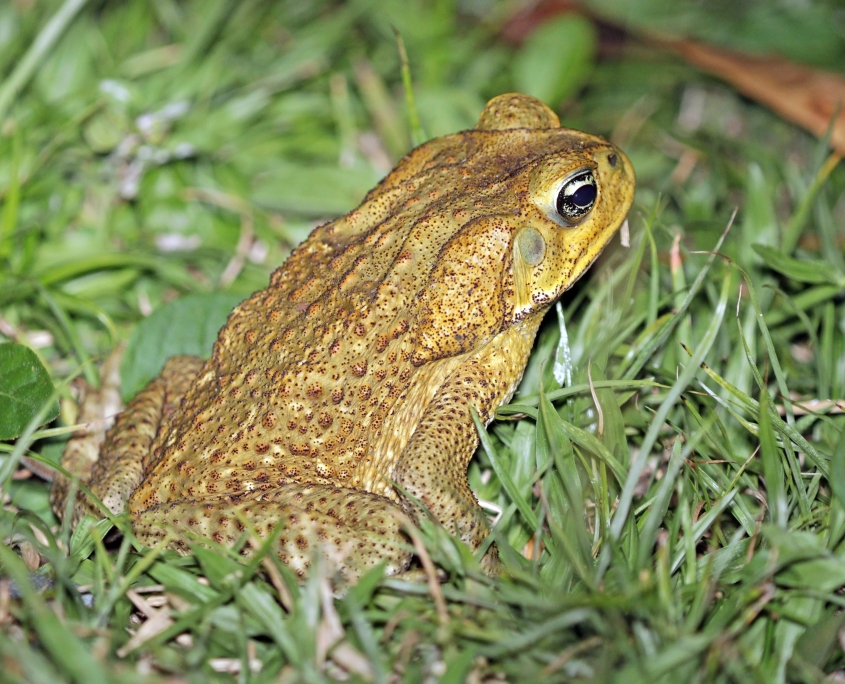Cane toads pose a common threat of poisoning, primarily in dogs and occasionally in cats. These toads secrete a milky white toxin, mainly from poison glands located behind their eyes and elsewhere on their bodies. Pets are at risk of poisoning when they mouth the toad or when the toad’s toxin comes into contact with their eyes.
Signs of cane toad poisoning
The corrosive and irritant nature of the toad’s venom leads to profuse salivation shortly after your pet mouths it. Pets affected by this venom may paw at their mouths due to the pain.
Vomiting is a common occurrence, especially in cats, along with hindquarter weakness and a fixed trance-like stare.
Dogs may experience seizures or convulsions, often proving fatal without urgent veterinary attention. The toxin can also impact the heart, potentially causing immediate cardiac arrest in both dogs and cats.
Protecting your pets from cane toads
Cane toads are most active during the night, posing a particular risk to dogs with a strong predatory drive, such as Terriers, Cattle Dogs, Border Collies, and Kelpies. To prevent incidents, only allow your dog outside at night when supervised. If necessary, use a lead for added control.
Attach two or three bells to your dog’s collar. While these bells don’t affect the toad, they provide an audible alert when your dog is behaving suspiciously. Immediate investigation upon hearing the bells may save your pet’s life.
First aid measures
In the event of exposure, it is crucial to promptly remove all traces of the poison from your pet’s teeth and gums. Gently rub their teeth and gums with a wet, soft rag.
Do not use a garden hose to flush the toxin from the mouth, as this can lead to water inhalation and life-threatening pneumonia.
Emergency response
Transport your pet to the vet as quickly and quietly as possible. Keep them cool, as convulsions can lead to overheating, and gently restrain them during transport.
Being aware of the risks and taking preventive measures can significantly reduce the chances of cane toad toxicity in your beloved pets. If you suspect poisoning, swift action is essential for a positive outcome.




